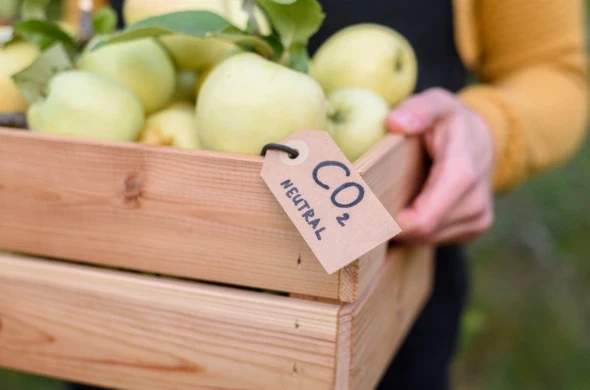The poultry market in United Arab Emirates, Saudi Arabia, and the surrounding region continues to grow. Data indicates that, in 2024, the industry has a $1.2 Bln market share and that is expected to grow substantially over the next 10 years.
With the support of farm consultants, farming within the organization is growing in popularity. Core to the limited early development of poultry and livestock farming here is the limited amount of freshwater available. This industry, along with overall agricultural growth, has struggled due to limited assets.
At the same time, there is refreshed energy in locally sourced food products and an increase in the restaurant industry demand due in part to a growing expat population.
All of these factors are contributing to a demand for innovation and sustainability, to not only create a better future, but to do so for the betterment of the people and the planet overall.
The Rise of Vertical Farming
Within the urban region, agricultural space is even more restricted than in large global cities. High population density and limited resources make large spans of land inaccessible for livestock and poultry farming.
To support these efforts, there has been a move towards vertical farming. In urban areas, this type of agricultural development requires far fewer resources and allows for the replenishment of natural resources, like water, very easily. With some of the world's largest vertical farms, the region is able to produce more fresh produce and other agriculture.
Sustainable Livestock Farming Innovations
Farming consultancy services also help local livestock and poultry farmers find new ways to meet consumer demand with limited resources. Organizations are turning to technology to tap into new and innovative strategies for improving production. Advanced farming equipment that streamlines efforts, minimizes waste, and better utilizes energy is helping tremendously. Technology also provides opportunities to reduce energy consumption while driving lower carbon emissions.
More so, the region has created significant changes in the way it raises livestock, especially lamb. With a focus on more sustainable methods, including providing well-being and health-focused initiatives for livestock, has opened the door for improved product.
Poultry Farming: Meeting Demand Sustainably
While this region has seen an incredible growth in demand for poultry, specifically chicken, it is not just a localized trend. Rather, the global poultry market is expected to grow to $482 Bln by 2027 at a rate of 6.5%.
This is certainly an area of focus for improving sustainability. To do that, organizations are tapping into technology to improve farm management efforts. Technology is also helping to support improved bird welfare, including faster chicken feeding and better access to on-farm hatching. Better management of water and waste materials is also helping to reduce the carbon impact and overall environmental impact on the region’s limited agricultural resources.
Urban Farming Technologies
Throughout the UAE, farmers and government organizations are looking for more ways to enhance urban farming, creating opportunities to produce more with less space and fewer resources. Though a comprehensively challenging process, new farming technologies are helping to reach these goals.
Controlled-Environment Agriculture (CEA) is one of those leading strategies. This method facilitates and regulates all aspects of farming, including humidity and temperature, irrigation, nutrient delivery, as well as lighting. This facilitates a more precise way of farming, improving product yields, health and quality of finished products, and utilizes more urban space without the need for fields of nutrient-rich soil.
The benefits of CEA are numerous including as much as 95% less water used, 80% space savings compared to the traditional hydroponic farming methods, and has a limited carbon footprint. More so, it is better for the environment since it reduces the need for pesticides and can create highly nutrient dense products.
Urban farming technologies are numerous. They include the use of vertical farming as well. Vertical farming can utilize hydroponics and aeroponics, a strategy that allows for the growing of nutrient-rich foods without the need for dirt or high levels of water, both of which are very limitedly available in this region. This has allowed more local, vertical structures within urban environments to help contribute to the demand for higher-quality solutions.
Regional Focus: Challenges and Opportunities
Working with global farming consultancy services has allowed various areas of this region to develop new strategies to overcome the most common limitations here.
The largest of these from a poultry and livestock vantage point is the amount of limited freshwater present. The use of new strategies for better management of freshwater and the utilization of cleansing methods is enabling improvements in this area, but there is still a limited supply, and that has led to difficulties in capitalizing on growing agricultural and livestock here.
Throughout UAE, Saudi Arabia, and Africa, a lack of area has also led to limitations on livestock and poultry farming. Challenges related to industry resources has led to a number of promising improvements, though. That includes regional initiatives and investments by local governments to find new ways to grow food resources closer to home. Aggrotech and vertical farming are just two of those core areas.
It is important to note that there is a strong drive towards improving not just technology and sustainability but also to improve food security, which has been an ongoing challenge for the region for decades. New technology is enabling this as more farm consultants and consultancy services come on board to create solutions.
Throughout the region, there is a growing embrace of sustainable and tech-focused farming practices, and that is a critical step for the region's need to improve food security, reduce environmental impact, and lessen the demand for limited freshwater supply.
With the use of food consultancy services, organizations throughout this region are finding new opportunities to use the limited resources they have to produce better quality, nutrient-rich food that continues to meet the demands of today’s more diverse population.
Read our latest insights, ideas, and perspectives that explore the trends shaping the future of business and society. Our consultancy services go hand-in-hand with these insights,confirming our position as industry leaders. Get in touch to find out more about our consulting services and industry expertise.



